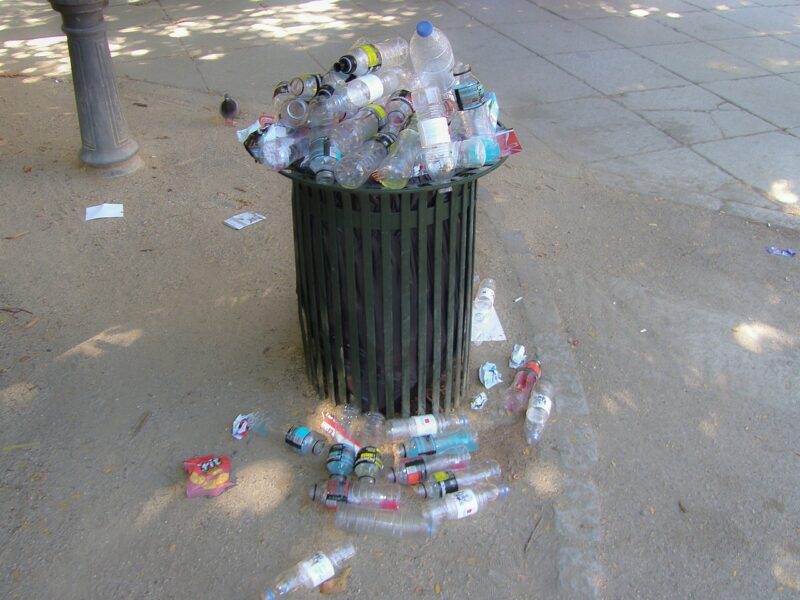The Importance of Recycling and How to Get Started
November 11, 2024

In today’s world, the topic of recycling has become more critical than ever. With the population growing and waste accumulation reaching alarming levels, recycling has emerged as a vital practice to conserve resources and protect the environment. In this article, we delve into the importance of recycling, its benefits, and how you can get started on your recycling journey.
1. Why is Recycling Important?
Recycling is the process of converting waste materials into reusable materials. This practice reduces the amount of waste sent to landfills and conserves natural resources. Here are several reasons emphasizing its necessity:
- Environmental Protection: Recycling reduces pollution by decreasing the need for raw materials extraction, which can lead to significant environmental degradation and greenhouse gas emissions.
- Resource Conservation: Certain resources, particularly finite sources such as metals and fossil fuels, can be conserved through recycling, leading to more sustainable use.
- Energy Savings: Recycling often uses less energy than producing new products from raw materials. For example, recycling aluminum saves 95% of the energy required to create new aluminum from bauxite ore.
- Economic Benefits: Developing a recycling industry creates jobs and stimulates economic growth. The recycling sector provides employment in collection, processing, and manufacturing.
- Community Engagement: Recycling initiatives encourage community involvement and create a sense of responsibility toward environmental stewardship.
As we face global climate change and dwindling resources, integrating recycling into our daily lives is crucial for sustainability.
2. The Benefits of Recycling
Recycling contributes positively to society in various forms:
- Reduction of Landfill Waste: By recycling, we ensure that fewer materials end up in landfills, which can contribute to soil and groundwater contamination.
- Conservation of Natural Resources: Recycling conserves valuable resources like timber, water, and minerals, minimizing the need for new resource extraction.
- Mitigation of Greenhouse Gas Emissions: Recycling helps mitigate climate change by reducing greenhouse gases from both production processes and waste decomposition in landfills.
- Economic Growth: A robust recycling industry can spur innovation and development in sustainable technologies.
- Culture of Sustainability: Recycling fosters a culture that values sustainability and responsible consumption among individuals and organizations.
Understanding these benefits can motivate you to participate actively in recycling efforts.
3. How to Get Started with Recycling
Initiating your recycling journey can be as simple as following these steps:
- 1. Know Your Local Recycling Guidelines: Before starting, check your local government’s guidelines regarding what materials can be recycled and how they should be sorted and disposed of.
- 2. Set Up a Recycling Station at Home: Designate specific bins for different recyclable materials like paper, plastics, and metals. Label them clearly for easy sorting.
- 3. Clean and Prepare Your Recyclables: Rinse out food and drink containers to prevent contamination, which can render whole batches of recycling unusable.
- 4. Reduce and Reuse First: Before recycling, consider if you can reduce or reuse items. Emphasizing waste reduction is more effective than recycling alone.
- 5. Participate in Community Recycling Programs: Engage with local programs, and consider volunteering for community clean-up days or educational workshops.
Incorporating these steps into your daily routine will streamline the recycling process and bolster your commitment to sustainability.
4. Common Myths About Recycling
Despite the importance and benefits of recycling, several myths persist that may hinder participation:
- Myth 1: Recycling is Too Complicated: While it can seem daunting, most communities have simplified guidelines and processes for individuals.
- Myth 2: Everything Can Be Recycled: Not all materials are recyclable. Familiarize yourself with what can be accepted to avoid contamination.
- Myth 3: Recycling is Just a Trend: Recycling is a proven method to make significant impacts on our environment and resource conservation.
- Myth 4: It Doesn’t Make a Difference: Every bit of waste recycled contributes to reducing landfill volume and conserving natural resources.
Combating these myths can help create a more understanding and engaged population towards recycling efforts.
5. Conclusion
Recycling is more than just a good habit; it is a necessary part of our global effort to secure a healthier planet for future generations. By understanding the importance of recycling, recognizing the benefits, and taking actionable steps, anyone can contribute to protecting our environment. The time to act is now, and every effort counts.
So, start your recycling journey today! Take these insights, educate others, and be a part of the significant change in creating a sustainable future for all.







